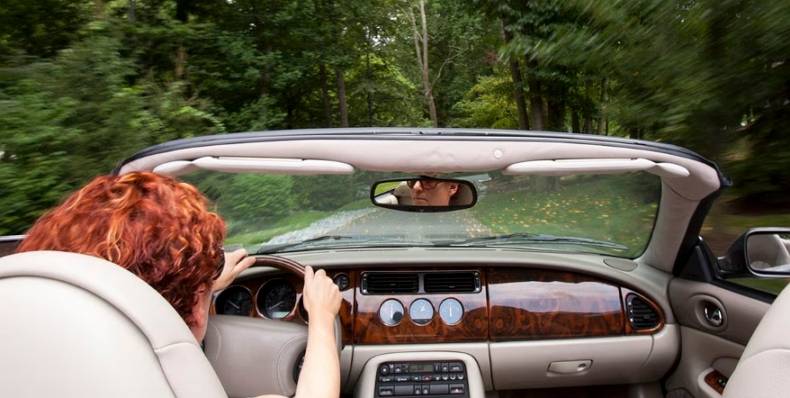Gen Z, the generation most impacted by school closures and job losses during the COVID pandemic, faces challenges in terms of earning potential and upward mobility compared to previous generations.
The popularity of cars appears to be waning as indicated by the decline in passenger car registrations in Europe. In 2022, there was a 10.4 percent decrease, resulting in 12.8 million units. The decline was even more significant when compared to 2019, with a total volume decrease of 29 percent and 4.5 million fewer new vehicle registrations.
Undoubtedly, the slowdown in new car arrivals at dealerships caused by the semiconductor shortage, inflation, and the energy crisis has played a significant role in the downturn. However, it raises the question of whether our affinity for cars has diminished and if it is no longer the status symbol it once was.
Over the years, different generations have developed distinct connections with automobiles. Baby Boomers, born between 1946 and 1964 during the post-war economic boom, proved to be an ideal customer base for car manufacturers. Their significant purchasing power and accumulated wealth played a crucial role in driving the growth of the automotive industry.
Generation X, born between 1965 and 1980, acts as a demographic bridge between the Baby Boomers and Millennials. This generation, with approximately 65 million individuals worldwide, is relatively smaller in size compared to the 75 million Boomers and 83 million Millennials.
Generation X was defined by a shift in family dynamics, where dual-income households became more prevalent. Unlike the traditional Boomer households where men were often the sole earners, Generation X saw an increase in women working outside the home. This change led to a greater need for two cars in many households to accommodate the commuting and transportation needs of both partners.
However, when the Millennials, also known as Generation Y, emerged on the scene between 1981 and 1996, their entry into the workforce coincided with the 2007-2009 recession. This event led to speculations about the decline of car ownership and driving among this generation. Millennials exhibited a preference for car-sharing and other alternative transportation options rather than owning their own vehicles.
Millennials, driven by a combination of cost considerations and a preference for technology and on-demand services, found the emerging options of ride-hailing services and ride-sharing more attractive than traditional car ownership. The expenses associated with owning and maintaining a car, coupled with the convenience and flexibility offered by these innovative alternatives, resonated with this generation.
Public transport increasingly favoured

Recent studies conducted in the United States suggest that while Millennials show a greater openness to using alternative modes of transportation, they still engage in driving, albeit to a lesser extent than previous generations.
Research published in the journal Transportation Research reveals that Millennials drive approximately 8 percent less than Generation X and 9 percent less than Baby Boomers. This indicates a noticeable shift in driving behavior among Millennials, reflecting their willingness to explore other transportation options.
Generation Z, the cohort born after 1996, holds the distinction of being the first generation to come of age alongside the Internet and smartphones. Their unique upbringing in a highly connected digital world has made them a challenging consumer group for digital marketers to understand and predict their buying preferences. With a heightened level of digital literacy and a penchant for embracing emerging technologies, Generation Z presents a new set of opportunities and challenges for marketers seeking to engage with this influential demographic.
Car manufacturers are increasingly worried about the preferences of today’s digitally savvy young generation. Generation Z is showing a tendency to avoid driving and instead embrace more sustainable options such as cycling and public transportation. This generation, known for its diversity and high level of education, faces unique challenges in the housing and labor markets, making them particularly vulnerable. Car makers are now grappling with how to adapt to the shifting preferences and needs of this influential generation.
Generation Z, often considered the most vulnerable generation in terms of poverty and intergenerational earning mobility, has been significantly impacted by the COVID-19 pandemic. With school and college closures, as well as job losses, their economic prospects have been severely affected. As a result, the preference for sustainable modes of transportation among Gen Z, such as cycling and public transport, may not solely stem from concerns about health and the environment but also from the financial considerations associated with driving. The high costs associated with car ownership and maintenance could further deter this generation from embracing traditional driving practices.
A recent study conducted in Germany examined changes in everyday bicycle and car usage from 2002 to 2017. The findings suggest that shifts in everyday mobility patterns are not solely influenced by generational change.
Fewer private car sales

According to the research, the choice between using a car or a bicycle as a mode of transportation is influenced by various factors rather than just generational differences. Key determinants include geographical location, educational attainment, income level, and commuting distance. These factors play a crucial role in shaping individuals’ transportation preferences.
A recently published report, titled “The Future of Mobility” by McKinsey, a leading global management consulting firm, highlights the imminent transformation of mobility. One of the significant outcomes anticipated is a decline in private car sales, reflecting changing trends in transportation.
In the coming decade, there is a projected 15 percent decrease in private vehicle usage. This decline is driven by various regulations implemented by countries and cities worldwide, aimed at promoting sustainability and reducing reliance on private cars. Measures such as reducing available parking spaces and implementing limitations on private vehicle numbers in urban areas are expected to contribute to a significant drop in car usage, particularly in European and US cities.
Lower car ownership rates among Generation Z can be attributed to various factors, including the rise of low-paid and less secure job opportunities as well as a decrease in home ownership. However, it is important to note that the shift in car ownership patterns is not solely driven by a specific age cohort. Multiple demographic groups and societal changes play a role in shaping the evolving landscape of car ownership and mobility preferences.
While the car is anticipated to retain its prominent position in the transportation landscape over the next decade, it will encounter mounting competition from alternative modes of transportation. This shift in dynamics may lead not only Generation Z but also a broader range of individuals to question the necessity of car ownership in the future. As new transportation options continue to emerge and societal attitudes evolve, the concept of personal car ownership could undergo further reconsideration.
